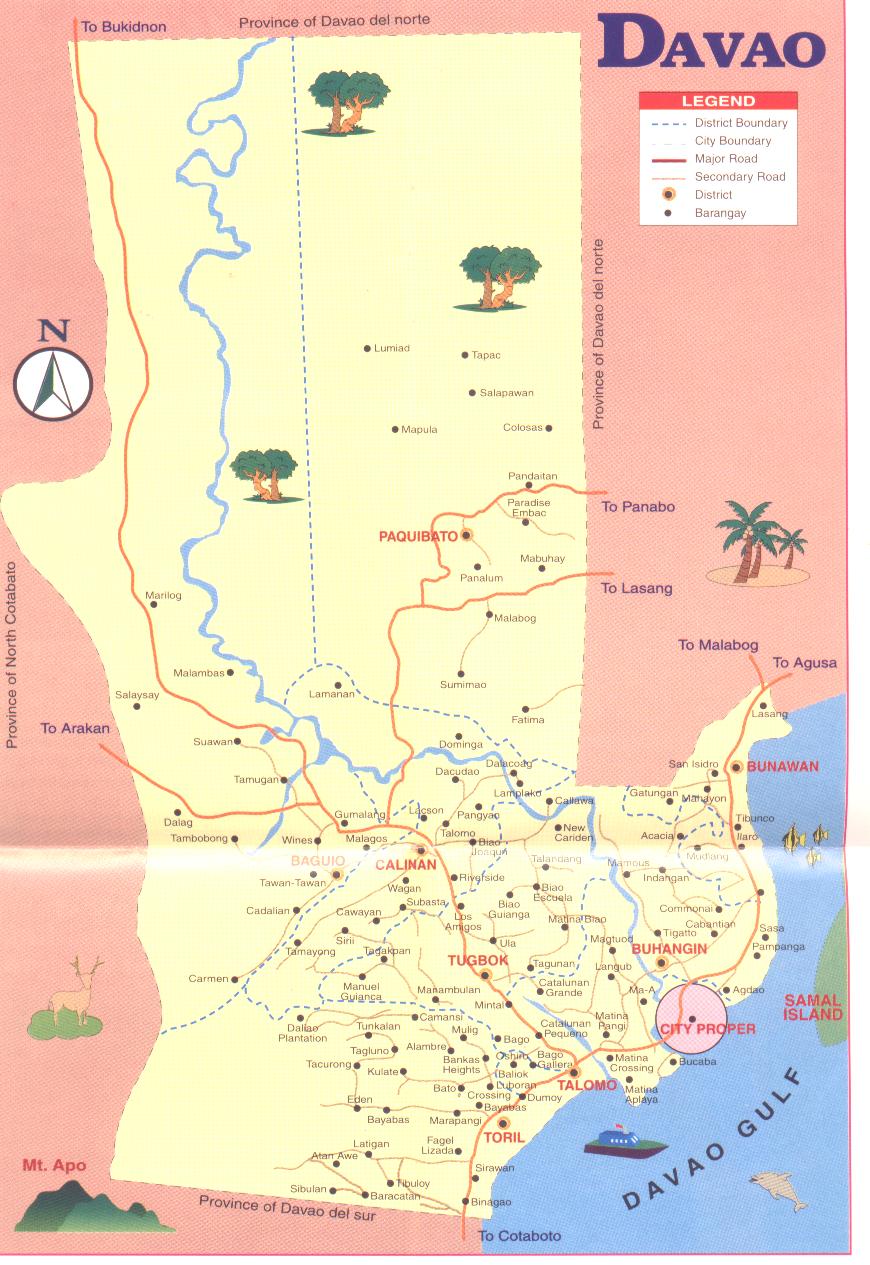
History:
Davao's history is brief but interesting. the first inhabitants were the tribes whose origins, anthropologists are still trying to discover. The Manobos, Tagacaolos, Guiangans, B'laans and Itas occupied the eastern part; the Ysamals, occupied the Samal Island Group. Then Maguindanaos came from the west and drove the earlier tribes to the mountains.
The Spaniards, led by Alvaro Saavedra, came in 1528. by 1844, the Sultan of Mindanao had to cede the region to the Spanish Government though there were resistance from the Muslim tribes.
The Americans came in 1900, led by Major Hunter Ligget. By 1914, Davao was established as one of the seven districts of the Department of Mindanao under the American Military Government.
Under the Philippine Commonwealth, Davao became a Chartered City. The city was inaugurated by then Secretary, and later President, Elpidio Quirino on Maarch 16, 1937.
As Davao grew and developed, it was divided into three provinces in 1967. Since the division, Davao developed its own stature apart from the three provinces. Today, it is the business center and trade capital of Mindanao.
The residents of Davao are proud of their past and image as "Melting Pot of the Philippines". It is also the largest city in the world, in terms of land area and the 2nd safest water in the world, next to the Netherlands.
We are confident of the future.....
General information:
Total Land Area 244,000 Agricultural Land 43%
Forest Land 47% Urban Area 10%
Population 1.2 Million Population Density 362 per sq.m
Population Growth 3.31% per year Literacy 96.4%
Ave. Temperature 20c to 32c Ave. Rainful 2,000mm
Humidity 77% - 83%
Davao : rich in Natural Resources, no pollution, safe and clean water, quiet and safe city in the Philippines
Samal Island of Davao: Great Beaches and Natural Resources
Neighboring Provinces: Natural Park and Wildlife Sanctuary